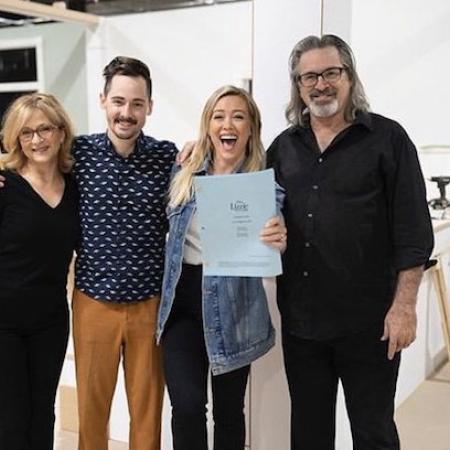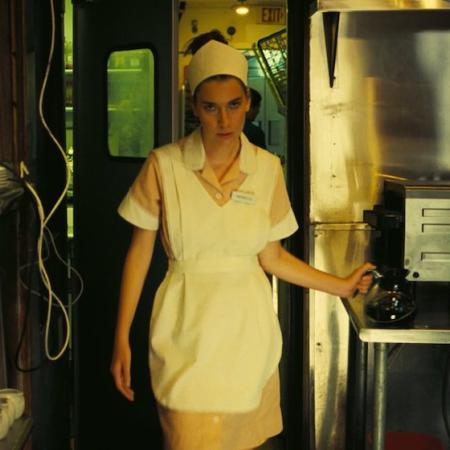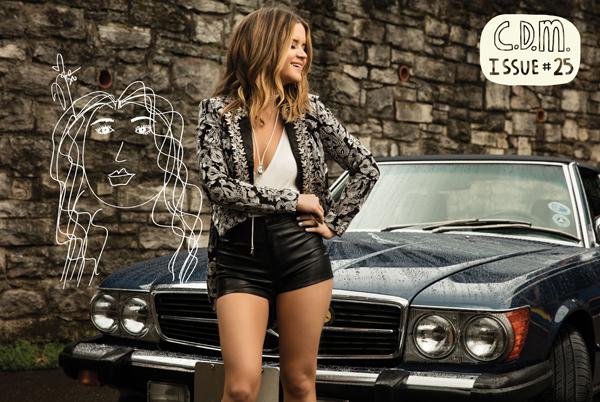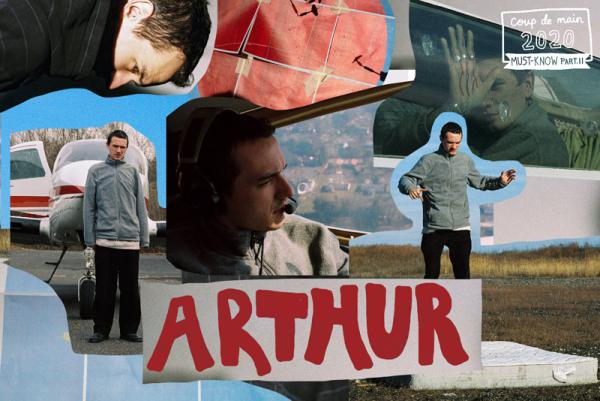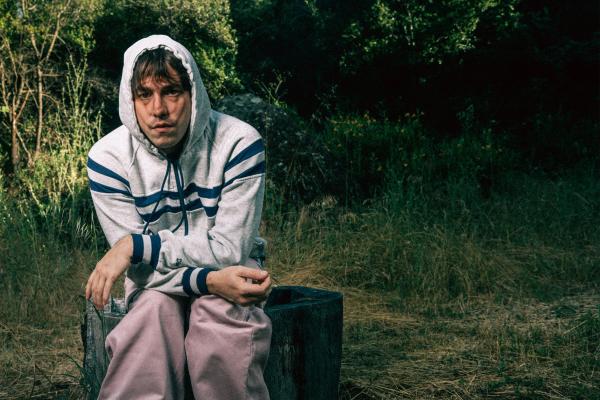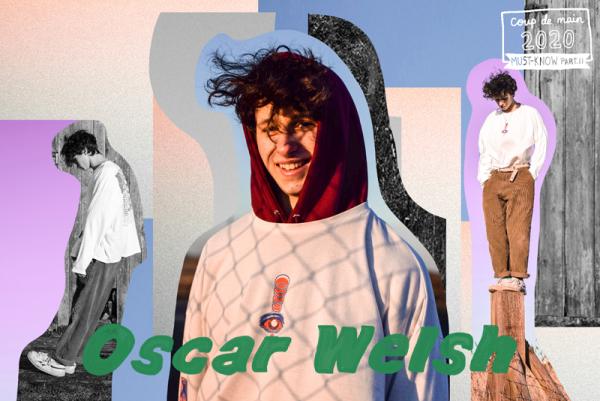In their song 'More', from their third album 'Kin', Electric Guest aptly sum up our society today, with the band's frontman Asa Taccone singing, "Sometimes it's hard to know what I'm living for / But I come back again each day / 'Cause I want more" - an ode to consumerism and our endless desire for more.
The album follows their 2017 release 'Plural', and sees the duo showcasing their pop sensibilities, all the while commenting on the dangers of modern society, as well as exploring ideas around relationships, friendship, technology, and more.
We spoke with Electric Guest in Los Angeles ahead of their new album's release to discuss consumerism, life without technology, and much more...
...consumerism, and this crushing weight of individual pressure that everybody feels to be special or worth it in this way. I just think we have our value system pretty off right now. And it is the dominant culture of material - the more material wealth you have, the more of value you think you are.

COUP DE MAIN: We're very excited about your new album 'Kin'! When did you start thinking about and working on the album?
ELECTRIC GUEST - MATTHEW COMPTON: Pretty much right when we got off tour from 'Plural', honestly. I remember it that way, but maybe that's not how it was. I knew that we think we took too long between the first and second record, so we didn't want to wait too long for the third one to come out.
ELECTRIC GUEST - ASA TACCONE: We took like five years in between the first and second one. But this one we did wait, it was last year that we banged in out in the course of six months, like the bulk of it.
CDM: Do you think it's important to have a gap between ending a cycle and starting something else?
ASA: I think it just depends on where you're at. I don't want to exalt the arts too high, like 'it's so amazing and mysterious,' but it isn't the same as hammering in a nail. It's just whether you have something to say or whatever, and I think we took a little bit of time off and then when we came back it was this really easy and fun thing. It was probably the least thought-about album that we've done. I don't know if that's a good or bad thing.
CDM: About 'Dollar' you have said: "In this Money Is Everything culture this song serves to have a different message: you are of value even if you only have a dollar in your pocket. S/o to everyone who’s struggling & broke right now, keep your head up! Life is hard sometimes but let’s power through it together." Do you think it’s important that ‘value’ isn’t the same thing as having economic stability?
ASA: Oh my god, yeah.
MATTHEW: Yeah.
ASA: Out here in the USA, we have consumerism, and this crushing weight of individual pressure that everybody feels to be special or worth it in this way. I just think we have our value system pretty off right now. And it is the dominant culture of material - the more material wealth you have, the more of value you think you are. I was listening to that Stevie Wonder song 'Uptight (Everything's Alright)', and that's the message of it - it's like, 'I'm broke, I'm a kid from across the tracks, but I do keep my lady happy.' That was kind of the impetus for the song.
CDM: Did you end up sending anyone money via Venmo around the release of 'Dollar'?
MATTHEW: <laughs> Apparently we did!
ASA: Supposedly we sent 1,000 people $1 each. But the problem was, if Venmo see somebody giving 1,000 different people $1 on one day, it sends up a red flag for fraud. So we linked with them a couple of months before and set it up, but because it runs through a bunch of third-party apps, they did shut it down and hella people didn't get their money. So a lot of people were DM-ing us like, 'Where's my fucking dollar?' I think people actually thought they were going to get some crazy payday. I think if they knew they were going to get a dollar they'd be like, 'Okay great, thank you.' But people were like, 'I'm still looking at my Venmo every day!'

CDM: I think ‘1 4 Me’ is one of my favourite songs on the album. "I know I can’t have everything in this life," you say. Do you think it’s important to value friendship/relationships over material goods?
MATTHEW: Definitely.
ASA: Totally. And also that line was so much like, you get to an age where that kind of naive optimism of 'you can have it all' and trying for years to have it all in some way, you realise that life is compromise and it's giving into that in a big way. I've realised in my life the only good things in my life is lunch with friends and--
MATTHEW: Those are the most enjoyable moments!
ASA: Literally the most enjoyable! For so many years, in our ambition and all these things you want to do--
CDM: Do you think living in LA does that to you as well?
ASA: Oh my god, it brings up all your issues. I would say the gift of LA is that it brings up all your bullshit, and if you want to deal with it you can. But a lot of people don't, it caves in on them.
MATTHEW: A lot of people get a green light to act crazier in that regard, so you can go off in your fantasies in LA, but it can be toxic.
CDM: I really love 'More', it’s one of my favourites on your new album. What was running through your mind while writing that song?
MATTHEW: It's kind of similar to 'Dollar', about consumption and wanting more.
ASA: The void of modern culture. I think, even from our first album touring and the second album touring, just what we were hearing from fans, I think the culture of the United States has shifted, and more and more we just heard people struggling. On our second time around on tour people were saying, 'I had to work for a month to save up for this ticket.' More and more when we were talking to fans, it was the same struggle - 'I can barely make it.' The same theme of the more you focus on materialism and thinking that it's going to bring meaning to your life, and it doesn't, it's lunch with friends that brings meaning to your life, or trying to live for something outside yourself. But that's just not the dominant value right now. So the song is about being in this time where sometimes it's hard as hell to wake up, but you keep going on for the hope that it'll shift.
CDM: I love the vocal effects throughout ’24-7’ and throughout the album. How do you go about experimenting with different sounds as Electric Guest?
MATTHEW: That's actually really funny, because we had a lot of talk about that with the label - they really wanted us to make it not have an effect on it. We loved the effect because it's part of the fantasy and it adds to the fantasy of the song.
CDM: It almost makes it feel like different characters.
MATTHEW: 100%! Yes! That's what we like.
ASA: It was also because I couldn't come up with something that was good for that part. Then when I pitched it up, I sung it in a lower register and then pitched it up and was like, "Oh that's tight and that's unique."
MATTHEW: It was the same thing with 'I Got The Money'.

CDM: In 'Freestyle' you sing, "I been looking for a calling." How do you think people can find their purpose/calling in life?
MATTHEW: I think it's different for everyone, but it's about being flexible and being able to freestyle, or go with the punches, or change it up and not be so deadset on one thing. If that one thing is not destined for you, then you need to be flexible to find out what it is.
ASA: How do people find purpose? I just think it's the lifelong journey. That is the thesis statement of being a human being, and I think all I know is I think it's a long, slow burn, and it's really giving into that. I think, knowing yourself, and keep on asking those questions.
MATTHEW: And the answer is probably going to change in your life. There are certain things that I've wanted and I've gotten them and been like, 'Oh, I need something new,' or it changes and you don't want it anymore.
CDM: Do you think life was easier back in the day with no phones, as you sing about in ‘I Got The Money’?
ASA: Uh, yes it was! I look at it like in 'Harry Potter' how when you take a life and kill somebody your soul is fragmented - so, that's what Voldemort did, right? I look at social media as splintering yourself. There's you and there's the projection of yourself, and basically the more stock that you put into the projection, the more vulnerable you are. I think people are so self-aware in this very new way, where they basically project their ego image onto social media and thus we're very inherently insecure from it. So, there's a new pressure on people that is difficult. Everything is so advanced, and I'm not sure we're wired up, nervous system-wise, to be able to handle it.
CDM: It advances faster than us.
ASA: Exactly. I think technology is zooming forward, but I'm not sure we can quite handle it, or control it. When that huge oil spill happened, I was like, 'Damn, that's interesting that we have the technology to make it, but we can't even handle it when it breaks.' I kind of thought the same for this stuff - it's like, the technology exists, but you're pretty much the same neurological, biological human that you were 200 years ago. Your nervous system is wired up in the same way, you're kind of just this simple animal in a way, reacting.
CDM: It's causing more psychological damage as well.
MATTHEW: Right! The suicide rate is up.
ASA: I think people are starting to realise that it's not-- Often times when I get off an hour after losing my mind, down a rabbit hole on the Internet, you never feel good.
CDM: Time passes at a different rate when you're online.
MATTHEW: It's true!
ASA: To answer your question, I think it was a little easier, but I will say that every generation suffers from that, 'Oh, things have changed!' I think we're moving forward in a lot of ways that are good too, I just think it's a rough period. Any time of big change is difficult and uncomfortable.

CDM: What’s the sample at the beginning of ‘Get Out’?
ASA: We kind of realised after the fact that it's this full-on cult leader, Jim Jones. We just looked up preachers. I was like, 'There must be a thing about the devil.' He's so fervent, but it's this cult leader called Jim Jones. He's responsible for a lot of bad stuff.
CDM: In ‘Play With Me’ you touch on the idea of game-playing, which can be such an emotional rollercoaster, and you say, “Still I’d rather play until I lose.” Why do you think we, as humans, are sometimes drawn to game-playing and confusion?
MATTHEW: Relationships are very complicated. It just boils down to when people aren't accepted by someone that they have interest in, it's very hard for them to accept that, and it does become a game. It's hard to be in a relationship with someone and feel like you're getting what you want out of it and they're getting what they want out of it.
CDM: I love the string intro to ‘Birthday’! How did that instrumental come about?
ASA: For the album, I bought all these early 2000s synthesisers. I wanted it to have this faux-hi-fi sound, but like, dated, kind of. That's what I came up on, a lot of early 2000s pop and R&B, so I wanted some of that in the album. It was the first day I bought this little synthesiser, I was going through and there was a string patch and I just loved how fake/real it sounded. So I was just playing it, and it was the first thing that came from that song.
CDM: I like the closing track ending, "I’ll max it out one time for you / One time for you, because I know it’s overdue…" What made you want to end the album on that note? It’s such a nice sentiment to end a record with.
ASA: That song for me, was if you're going to be with anybody in any type of relationship, whether it's a friendship or a romantic relationship, I think there comes a point where it's not just about your comfort, it's about being in it for the long-haul and pushing yourself past your threshold. So I think that song for me was like, 'I'll go the distance for you,' and I thought it was a sweet sentiment and I wanted to cap the album with that. It's also one of the only slow songs on the album; the album is pretty fast. That's something we always suffer from, we rarely have a ballad, and if it does it has drums and it's very beat-heavy. We tried to put drums on that song a million times and it just didn't work, so I was like, 'Let's just leave it sparse.' Our friend says it's the best song about credit card debt that he's ever heard. <laughs>

CDM: About the album, you said: “We wanted to make straight up, unapologetic pop. We didn’t want to make a record that was angsty or artsy, but we also didn’t want to make pop that was void of sentiment either.” Do you think it’s important that pop music still has something to say?
ASA: I do.
MATTHEW: It has a place in everyone's lives where I can't be serious all the time and I need to have that release of fun - just hanging out with friends, with a vibe of music.
ASA: On the flip-side, I think pop in other decades was a bit more varied in terms of the theme. I was listening to Phil Collins, he had this song 'Another Day In Paradise', and that song is about homelessness. There were hella songs in the 90s about homelessness, like, smash hits. Today is like, 'I'm young forever!' It's the fucking worst. So I do think people are yearning, at least in the States, for something more. It's only that people get so stuck in fear of trying to do something popular that they don't write about other stuff; it's not that other stuff isn't on everybody's minds. I definitely hope that pop gets more varied lyrically, in terms of what people are talking about.
CDM: Matthew, where does your nickname middle name of Cornbread come from?
MATTHEW: From growing up in Virginia. I got it when I was really young and it just stuck. It always followed me.
CDM: You’ve done a lot of co-writing and co-producing for other projects. How do you find that work different to when you’re working on Electric Guest music?
ASA: We love it. You just don't have to care in the same way.
MATTHEW: You don't have to play the song for years and years, and maybe even consider it a burden.
ASA: Sadly, sometimes you can write better shit for other people because you have that child-like thing of just, 'Let's just fuck around!' You have no emotional association. But then when you get on your own thing you can over-think it more. That actually really informed this album, writing with other people, seeing other people, and seeing yourself in other people. So when we went into this album we were like, 'Let's have fun.' Music is fun!

CDM: What was it like working with Aminé?
ASA: It was awesome! He's great. We have a song that I really hope comes out at the end of the summer. He's actually someone, who to me, he's the future. He's talking about things, and he's a mix of talking about ratchet shit and also conscious stuff. He has really good pop sensibilities.
CDM: How does it compare to working on comedy projects like The Lonely Island songs?
MATTHEW: It's just a different thing. They have a vision and an aesthetic, and if what you're adding to it fits in, then that's cool. It's not about the music, it's more about what they're doing.
CDM: We love ‘Feels Right’! When we had the album stream for Carly Rae Jepsen’s album sent to us it didn’t have any information about you in it, and I remember being like, ‘Who is that?!’ What was it like working with Carly on that song?
ASA: It was great! CB had sent me the instrumental which was just the piano, and it was all there. So we actually had written four different ideas for her and then she came over to my little house in Silverlake. It was a little embarrassing because my house is not very nice, the AC is kinda shot, and she's a bigger artist. But she didn't give a fuck. We cut the whole thing there. We did it with this other producer, John Hill, eventually. It was super easy. We did another one which I hope comes out at some point too. She's super sweet too, we have a bunch of close friends in common.
CDM: You performed in Australia at Splendour in the Grass back in 2012 - do you have plans to perform in Australia or New Zealand again on this new album cycle? You’ve never been to NZ!
MATTHEW: I would love to!
ASA: Hell yeah! Where was that crazy beach we stayed?
MATTHEW: Byron Bay.
ASA: I remember at midnight taking a walk on the beach by myself, and the sand was so fine it would squeak. <squeaks> I was like, 'This is heaven!'
MATTHEW: I really want to go to New Zealand! I had an old roommate from there who's an actress. She was so much fun, and I feel like people in California get along really well with people from Australia and New Zealand.

Electric Guest's new album 'Kin' is out now - click here to purchase and watch the 'More' music video below...



